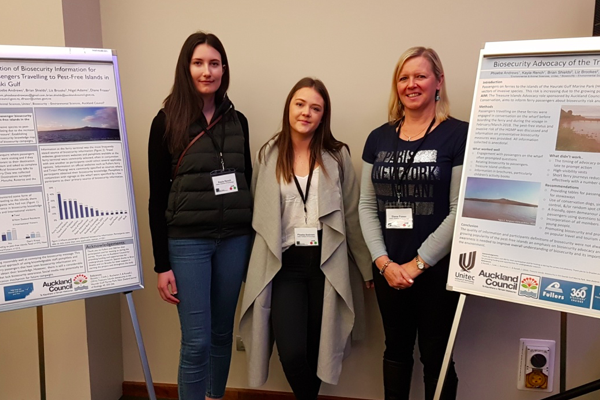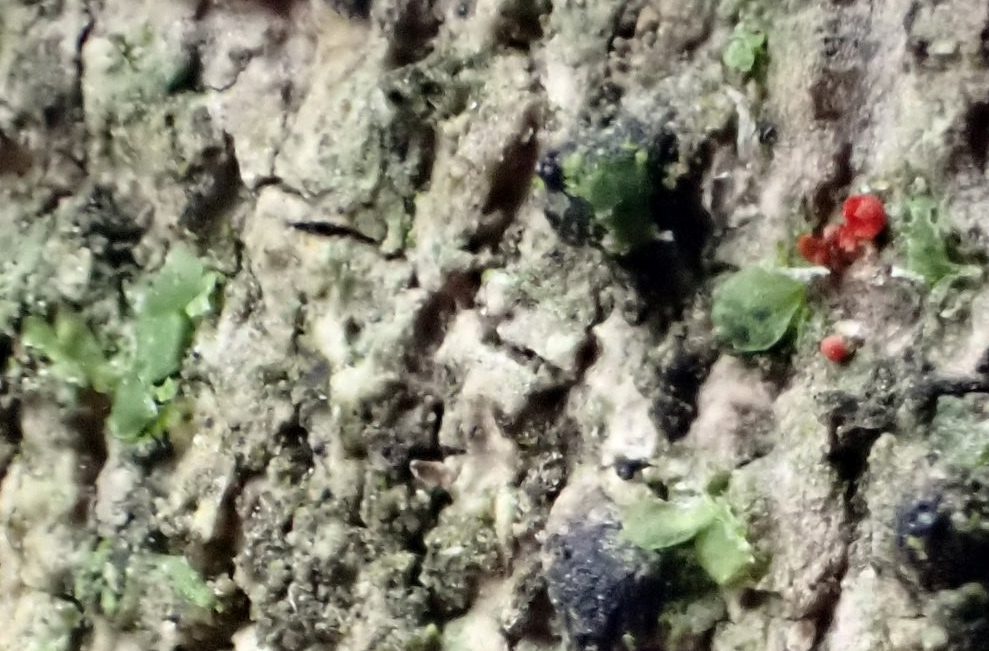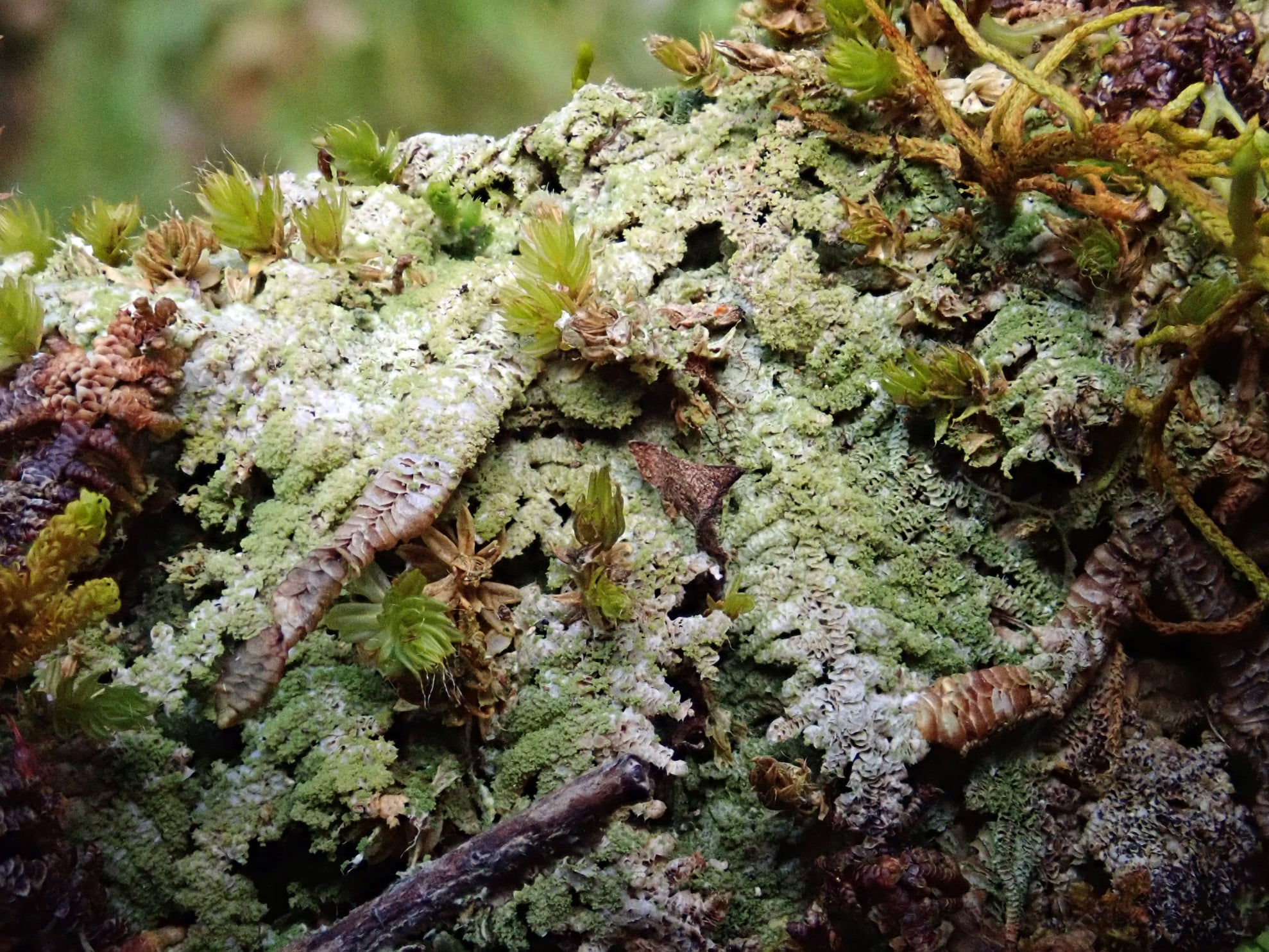Unitec’s ongoing research into biosecurity advocacy and its innovative peer-reviewed online journal caught the attention of attendees at this year’s NZ Biosecurity Institute NETS conference.
The annual education and training event brings together people from all aspects of the biosecurity field. For the past 7-8 years, Environmental and Animal Sciences (EAS) lecturers and students have had a presence at NETS.
Senior Lecturer Dr Diane Fraser attended this year’s event in late July in Nelson, with students Kayla Rench and Phoebe Andrews. Rench and Andrews gave a two-minute oral presentation, and each had a poster accepted on their biosecurity advocacy work.
The initiative they’ve been working on, in conjunction with Auckland Council and the Department of Conservation (DoC), is about reducing the biosecurity risk to Auckland’s Hauraki Gulf islands through public education. The islands, several of which are ‘pest free’, are important refuges for native endangered species.
Fraser says, “Among positive feedback from many attendees, Euan Kennedy, an ecologist with the Department of Conservation, expressed his pleasure at seeing a new group of students presenting at NETS and noted how well they had performed. Once again, attendance of NETS with students has been very successful.
“We greatly appreciate the funding and support provided by Auckland Council, so students can gain the experience of presenting at the conference and become exposed to the wider biosecurity industry.”
EAS students have carried out biosecurity surveys and advocacy research since 2011; many students have since secured jobs with Auckland Council, DoC, the Ministry for Primary Industries, and environmental consulting firms.
ePress publication provides wider research platform
As well as supporting her students, Fraser delivered a two-minute oral presentation and a poster by colleagues Mel Galbraith and Dan Blanchon about Unitec’s inclusive, peer-reviewed ePress publication Perspectives in Biosecurity.
According to Galbraith, about 45% of topics presented at previous NETS conferences are suitable for publication in current New Zealand journals, such as the Journal of Ecology and Journal of Zoology. This leaves a substantial range of topics, where opportunities for publication is limited. This multidisciplinary online journal will be a significant contribution to the industry, and an excellent promotion of Unitec’s research work.
Read about the diverse research within the Environmental and Animal Sciences practice pathway in the summer 2017 issue of Advance.
Find out more about studying Environmental and Animal Sciences at Unitec.





